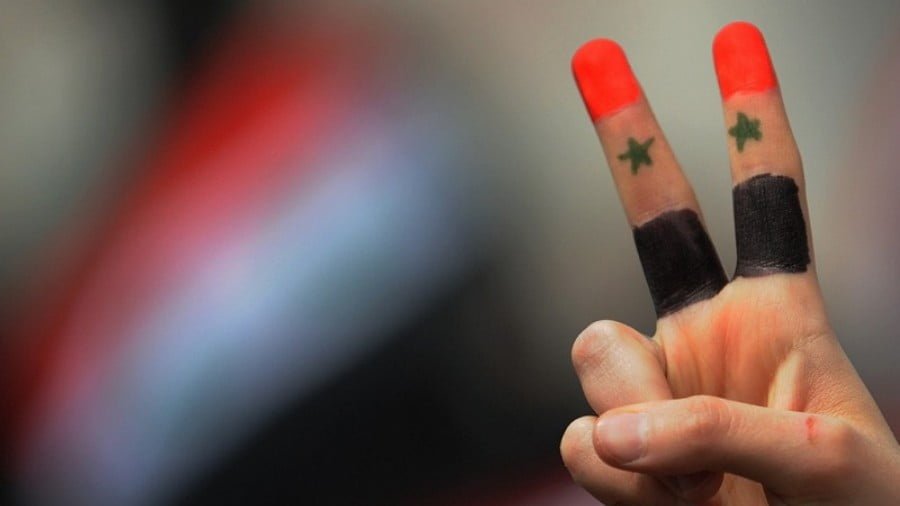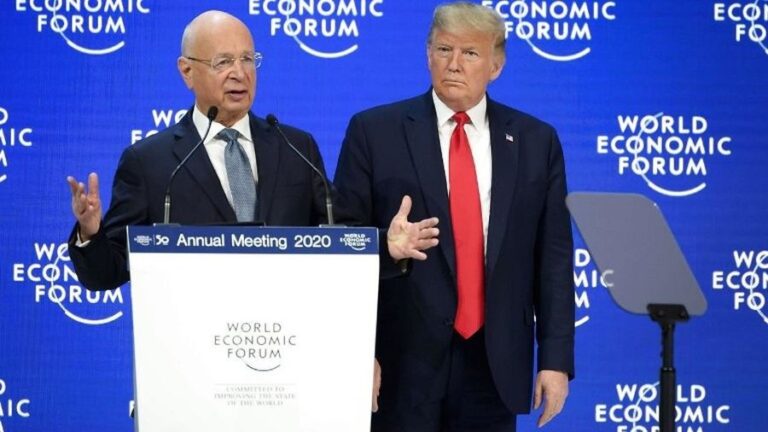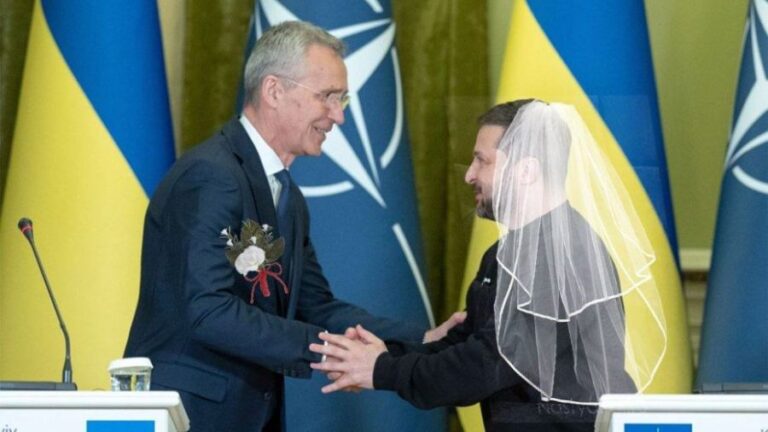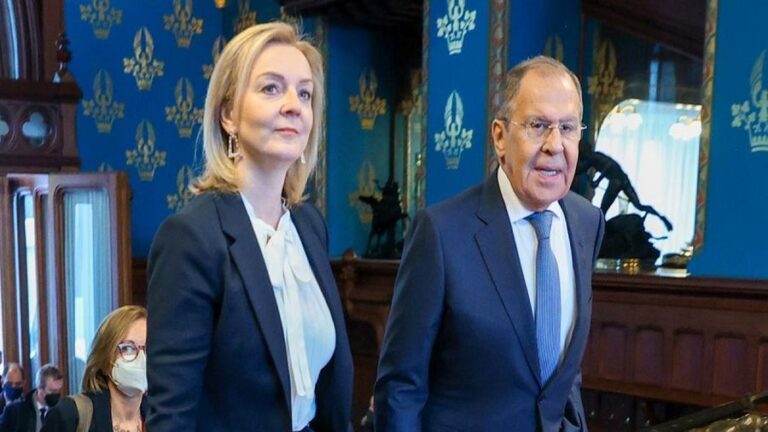Balancing Regional Interests in Syria Is the Only Way Reach a Compromise Solution
Politically resolving the Hybrid War of Terror on Syria will involve difficult compromises on all sides, but this is only possible if each party acknowledges their counterparts’ regional interests and Russian diplomats are able to successfully devise a creative solution for “balancing” between them as best as possible.
The Impossibility Of A Military Solution
The Hybrid War of Terror on Syria cannot be resolved militarily by any of the participating parties. The US and its fellow anti-Syrian allies, which importantly include “Israel” and Turkey to differing but not necessarily always coordinated degrees, are unable to forcefully overthrow the country’s democratically elected and legitimate government. In fact, one can argue that they don’t even pursue that goal all that seriously anymore after having informally accepted President Assad’s continued leadership of Syria, who they’ve learned to imperfectly live with after all these years. At the same time, the Syrian Arab Army (SAA) is unable to unilaterally liberate all of its territory from the occupying American and Turkish forces. This is especially the case after Russian Foreign Minister Lavrov reaffirmed late last month that Russia “cannot expel it, and we will not clash with US forces” in Syria, hence why he reminded everyone of his country’s “so-called deconfliction” talks with it. It’s for this reason why the war has largely remained frozen on the military front over the past few years.
The Long Path Towards A Political Solution
The only solution is therefore a political one, but this is only possible if each party acknowledges their counterparts’ regional interests and Russian’ diplomats are able to successfully devise a creative solution for “balancing” between them as best as possible. This might sound like wishful thinking to many at the moment, but it’s the only realistic way out of the present impasse, no matter how difficult some of the compromises might be. Of course, any potential solution must involve the means to verify each party’s compliance and ensure enforcement against all violators without discrimination. It might still be a long way off before anything like that is agreed to, but that noble goal must be the basis for beginning talks to that end at the soonest possible moment. To facilitate these efforts, it’s worthwhile remembering each party’s regional interests, after which a discussion can commence for exploring the most realistic extent to which each one of them might compromise on reaching a final Russian-brokered agreement to end the war.
Respective Interests
Syria:
* Sustain Anti-Terrorist Gains
* Liberate The Rest Of The Occupied Territories
* Retain The Centralized State Structure
* Remove The Crippling Sanctions Regime
* Reconstruct The Country
Russia:
* Sustain Anti-Terrorist Gains
* Maintain A Long-Term Military Presence In Syria
* Avoid A Larger War Erupting In Syria Between Iran & “Israel”
* Leverage Diplomatic Leadership To “Balance” The Region
* Maximize Post-War Economic Dividends
Iran:
* Sustain Anti-Terrorist Gains
* Prove To Damascus That It’s More Of An All-Around Reliable Ally Than Russia
* Receive An Eventual Economic “Return On Investment” For Saving Syria
* Entrench Military Presence In Syria As Long-Term Strategic Leverage Against “Israel”
* Strengthen The Axis Of Resistance
Turkey:
* Prevent The Emergence Of A PKK-Pioneered Terror Corridor In Northern Syria
* Ensure That Turkish-Backed “Rebels” Have A Political Role In Post-War Syria
* Demonstrate To Regional Allies That It’s A Reliable Partner
* Strengthen Strategic Relations With Russia And Iran Through The Astana Process
* Establish Global Respect As A Rising Great Power
US/”Israel”
* Maintain Pressure On Damascus Through Unconventional (“Rebel”/Terrorist/Sanctions) Means
* Permanently Neutralize The Anti-”Israeli” Capabilities Of The SAA
* Expel Iranian Military Forces From Syria
* Retain “Freedom Of Action” To Conduct “Surgical Strikes”
* “Decentralize” Syria To Redistribute Damascus’ Power To Allied Proxies
Assessing Strategic Successes And The Lack Thereof
With the above-mentioned strategic goals of all relevant players in mind, it’s now time to assess their successes and lack thereof. What follows is a simplified bullet point list of the present state of affairs:
* ISIS’ “Caliphate” Has Been Dismantled But Terror Threats Persist Along Syria’s Periphery
* Foreign Forces Continue To Support “Rebel”/Terrorist Groups
* Political Progress Towards Peace Is Practically Non-Existent Because Of A Refusal By All To Compromise
* Turkey Is The Only Party Continuing To Resist The Syrian Kurds’ Participation In The Peace Process
* US-Enforced Sanctions Will Remain Until Damascus Irreversibly Compromises On Political Issues
* Russia Sat Back While “Israel” Reportedly Hit 50 Targets In Syria Last Year Alone
* Russia Has Yet To Allow Syria To Operate The S-300s To Defend Itself From “Israeli” Strikes
* “Russia’s Reshaping Syria’s ‘Deep State’ In Its Own Image” To Reduce Iranian Influence
* Russia’s Regional Diplomatic Role Continues To Rise As A Result Of Its “Balancing” Act
Zero-Sum Interests
Building off of these observations, the following zero-sum interests are presently obstructing a solution:
* Syria Won’t Consider Political Compromises Until Its Territory Is Liberated And Sanctions Removed; The US And Turkey Won’t Withdraw And Remove Their Sanctions Until Syria Makes Political Compromises
* Turkey Won’t Fully Support The Political Process In Syria If The Kurds Are Involved; All Other Players Believe That The Political Process Can’t Succeed Without The Kurds’ Involvement
* “Israel” Will Continue Bombing Iran In Syria Until The Latter Fully Withdraws; Iran Won’t Seriously Consider Withdrawing From Syria Until “Israel” No Longer Poses A Direct Threat To It And Its Syrian Ally’s Forces
* The US & “Israel” Will Continue Pressuring Damascus Through Unconventional Means Until It Politically Compromises And Expels Iran; Damascus Won’t Consider Either Until Those Two Stop Pressuring It
* Russia Is The Best Suited Of Syria’s Allies For Promoting Damascus’ Interests Among Relevant Hostile Players; Syrian Interests Will Always Be Subservient To Russia’s Own With Respect To Its “Balancing” Act
Summarized Insight
Considering everything, a Russian-brokered compromise solution would have to do the seemingly impossible by resolving the contradictions between each relevant players’ zero-sum interests. This would naturally involve painful compromises by each party except for itself since none of the others have the political will to cross its red lines by either militarily targeting its forces (relevant for Iran/Turkey/US/”Israel”) or expelling it from the country (such as if Syria ever became fed up with Russia’s “balancing” act being carried out as its “perceived expense”). The three most controversial issues in the grand scheme of things are the refusal of any domestic party to compromise on the peace process and thus lead to promised sanctions relief, the continued US and Turkish military occupations of Syria (“Israel’s” Golan one is taken for granted), and Iran’s continued military presence in Syria which is exploited by “Israel” to “justify” its regular attacks. Quite clearly, these three bones of connection must somehow be creatively addressed by any speculative Russian-brokered compromise solution.
Speculating On A Russian-Brokered Compromise Solution
As the most realistic starting point, Russia can “lean on” Syria to promise constitutionally enshrined decentralization in the currently occupied territories allowing for a greater degree of local political and cultural autonomy for groups opposed to Damascus’ centralization policies there while preventing them from conducting their own military and diplomatic relations with foreign powers. If agreed with all relevant players ahead of time, this could satisfy some of the US and Turkey’s political demands while also ensuring Syria’s national security interests. Should progress be made on this front, then Syria could request Iran’s dignified but phased withdrawal from the country in parallel with symmetrical US and Turkish steps culminating with the gradual lessening of sanctions in order to facilitate much-needed reconstruction. As a guarantee against continued “Israeli” aggression afterwards, Russia could then transfer control of the S-300s to the SAA and even consider exporting state-of-the-art S-400s to it too upon all foreign forces’ ultimate withdrawal from Syria.
Concluding Thoughts
The proposed Russian-brokered compromise solution for politically ending the Hybrid War of Terror on Syria is admittedly imperfect and might even be unrealistic so long as even one of the relevant parties lacks the political will to compromise on their zero-sum interests. The key to success lies in Russia leveraging its “balancing” act to foster indirect trust between hostile players through their shared belief in the sincerity of Moscow’s efforts to achieve tangible gains in these respects, after which they could all work on agreeing to timelines for each phase of the suggested peace plan. Nevertheless, partisan disagreements within each relevant party’s government could ultimately derail any progress that might be made if even one of them unilaterally reverses its previously (whether publicly or secretly) agreed commitments to each step, such as if their opponents provocatively presented their compromises as being a “loss of face”. It’ll therefore be very difficult to pull this off, but a political solution is the only possible one since a military solution is impossible.







